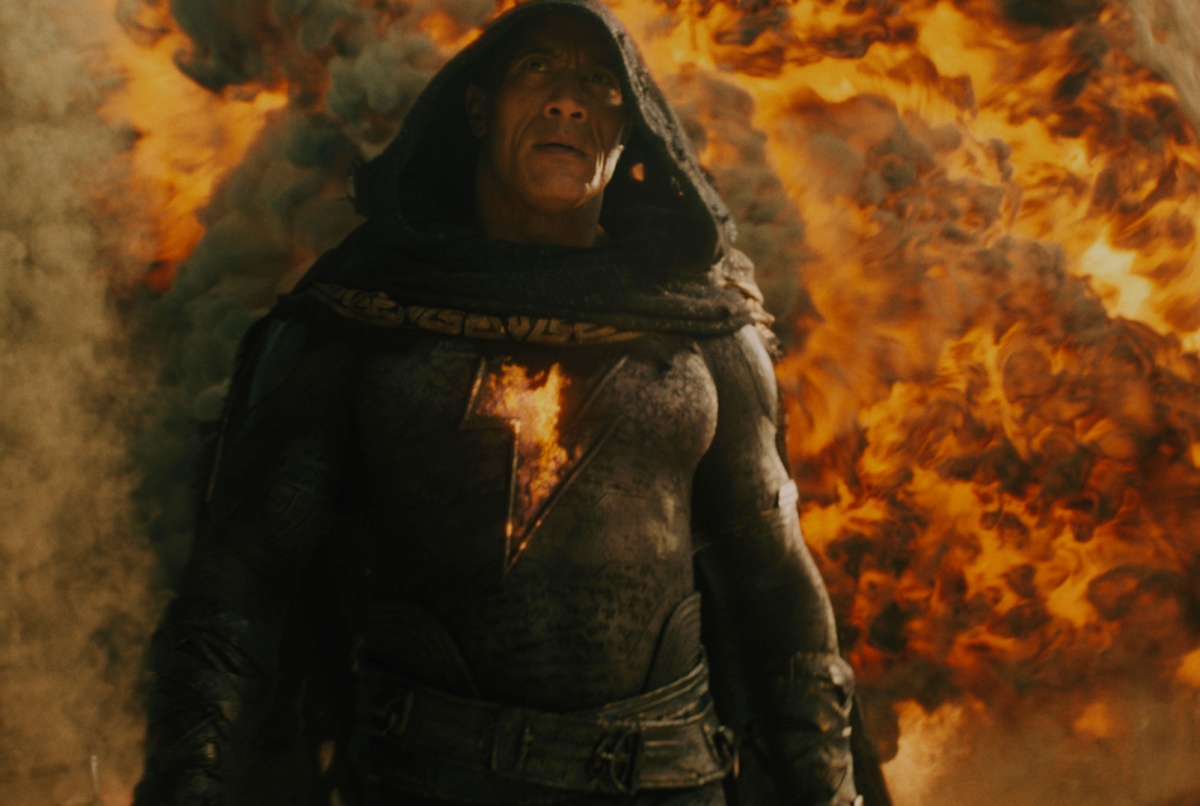Black Adam’s Success Points Out the Frustrating Reality of Comic Book Media Criticism

Despite a less than favorable 40% on Rotten Tomatoes from critics, Black Adam is currently climbing through DC Universe barriers with not just a 90% in audience response, but a domestic box office total of $111 million. And that’s only after a week. At this point, it could be the most successful film for the DCU at the box office since Aquaman.
Whenever the topic of being a Marvel shill comes up, it annoys me because reviewers don’t get paid, and if these studios can’t pay their VFX teams, why would they pay us? That being said, I do feel, at times, like there is a bit more grace given to Marvel by reviewers, even when their work is middling, than there is to DC. And to a degree, I get it. Until Wonder Woman, the offerings from the studio were meager, with Man of Steel being the only somewhat successful outing. I mean, this is the studio that couldn’t make Batman v Superman stick the landing. Since then, however, we have seen some fun stuff coming from the DCU. But fun doesn’t mean not generic.
If we look at the three best reviewed movies in the DCU, Wonder Woman, Shazam, and The Suicide Squad, they are three very different movies. The first two are origin stories, while the latter is an R-Rated sequel to one horrible movie (Suicide Squad) and one awesome movie (Birds of Prey). Wonder Woman is also a romance that had the burden of being the first film outing of the legendary super heroine and breaking the “curse” of poorly received female-led movies at the box office. Shazam was praised for its sense of fun, and The Suicide Squad managed to take Gunn’s great comedic timing and pair it with the DC Universe—the same magic that he brought to Peacemaker.
Yet, when we look to box office, Aquaman washed them all away. It not only grossed $1.148 billion worldwide, but it is still the highest-grossing DCU film, the highest-grossing film based on a DC Comics character, and the fifth-highest-grossing film of 2018. You know what came out that year? Infinity War, Black Panther, Incredibles 2, and Jurassic World: Fallen Kingdom. Despite that, Aquaman didn’t do that well critically and only has a 65% on Rotten Tomatoes.
One thing missing out of the conversation about both Aquaman and Black Adam is something we tend to talk about with other projects: representation. Aquaman was a massive project with an Asian director and a lead actor of Native Hawaiian ancestry, where a massive crux of the story was the duality of being mixed race. With Black Adam, despite the ways in which I, and others, think Middle Eastern/North African representation was handled, we are talking about a project in which most of the leading characters are POC—including Dwayne Johnson himself, who is Black and Samoan. We speak so often about how we want to be seen in comic book movies and ignore the way in which (even more than the MCU), the DCU has been pretty much at the forefront of that kind of diversity, regardless of what you may think of the films.
For me, I think that for over a decade, studios have been working to give legitimacy to comic book movies, and we have tried to have them all develop at the same pace. The DCU is still finding its footing, but that also means that it can’t be held to same standard as Marvel, nor should every plot hole be fingered so aggressively when the same isn’t done to a Marvel project.
I’m not someone who subscribes to the idea that critics only care about fancy music, but I do think we have seen a collective exhaustion about what comic book movies look like today, in the way they have monopolized talent, box office rankings, and the way we talk about cinema. But that doesn’t mean that we need to treat every naturally occurring repetitive element of the genre as indicative of hackery. We can’t ask for more exposition for smaller characters, while lamenting the tropes of an origin story. Not every character in the world of comics needs a feature-length story just because the actor playing them is impactful. Not without a larger vision.
Black Adam was meant to push the DCU in a certain direction, and it did that. Did it do it well? Depends on what you mean by that. Is the film art? No. Is it in line with many other (better received) origin stories? Yes. What is a pity is that critics cannot issue their opinions without it being seen as some kind of agenda—that we cannot disagree and discuss why we disagree without it needing to be treated as “chilling” or “stan culture.” Maybe we all sat down and watched a movie with our different tastes and feelings and came out the other side different. That is all.
In the end, we do need more variety and less superhero movies that are built up as these multi-million-dollar monsters. We are overloaded with them, and it makes the entire genre worse for it.
(featured image: Warner Bros.)
Have a tip we should know? tips@themarysue.com